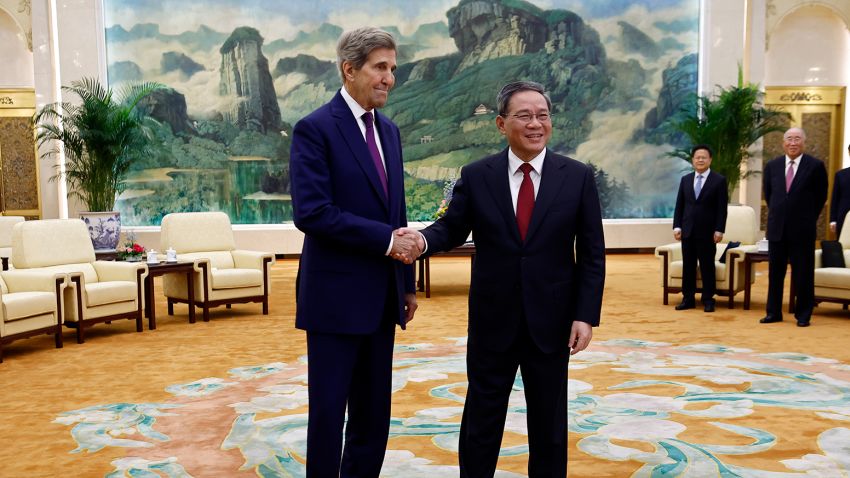Available reports suggest that Chinese leaders have rejected attempts by John Kerry, President Biden’s climate envoy, to persuade them to commit to tougher climate action during three days of talks in Beijing.
The response suggests that tensions between the countries are making it difficult to work together on a crisis that threatens the planet.
Kerry reportedly emerged late Wednesday from the lengthy negotiations in Beijing with no new agreements. The Chinese president, Xi Jinping, was said to have insisted in a speech that China would pursue its goals to phase out carbon dioxide pollution at its own pace and in its own way.
Still, Kerry appeared buoyed that the world’s two biggest polluters had restarted discussions, which had been frozen for a year because of strained relations over Taiwan, trade and other issues. He insisted he was not disappointed in the outcome, noting that just talking marked progress.
“We had very frank conversations but we came here to break new ground,” Mr. Kerry said, adding, “It is clear that we are going to need a little more work.”
Read also: Phoenix breaks heat record with 19th day of higher temperatures
It is not hyperbole to say that the extent of global warming depends on decisions made by China and the United States. According to available data, China emits 27 percent of global carbon dioxide and a third of the world’s greenhouse gases, more than all other developed nations combined.
To avoid the worst consequences of a warming world, experts say that the United States, which is the world’s largest emitter throughout history is expected to work with China to slash carbon pollution.
The talks in Beijing took place as the world measured the hottest two weeks on record and Mr. Kerry urged Chinese leaders to consider the heat scorching parts of China, Europe and the United States as a sign of worse things to come if they fail to slash emissions of greenhouse gases.
Kerry hoped to persuade China to start reducing its carbon emissions on a faster timeline and to quickly phase out its heavy use of coal, the dirtiest fossil fuel. China has said it would hit peak emissions before 2030 and stop adding carbon to the atmosphere by 2060.
However, scientists say that industrialized countries need to make deep and sharp cuts in carbon emissions now to stave off the most catastrophic impacts of climate change.
Story was adapted from New York Times.
